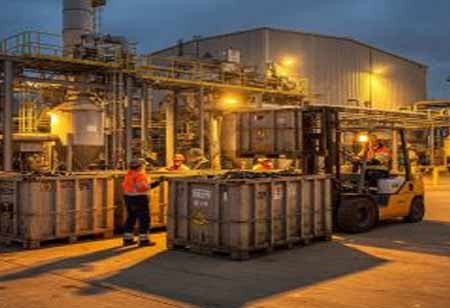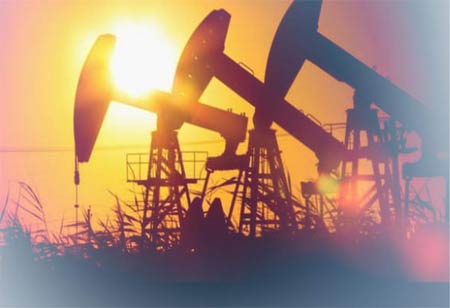CLOSE
Specials
I agree We use cookies on this website to enhance your user experience. By clicking any link on this page you are giving your consent for us to set cookies. More info
Be first to read the latest tech news, Industry Leader's Insights, and CIO interviews of medium and large enterprises exclusively from Energy Tech Review
Thank you for Subscribing
Why Does Oil And Gas Industry Must Continue To Innovate And Adapt?
The oil and gas industry has been a critical component of the global economy for over a century

By
Energy Tech Review | Wednesday, May 10, 2023
Stay ahead of the industry with exclusive feature stories on the top companies, expert insights and the latest news delivered straight to your inbox. Subscribe today.
One of the biggest is the growing pressure to lessen greenhouse gas emissions and transition to cleaner energy sources.
FREMONT, CA: The oil and gas industry has been a critical component of the global economy for over a century, and it remains one of the most essential sectors today. The energy derived from these resources fuels much of the world's transportation, manufacturing, and electricity generation, among other things. The continued demand for oil and gas makes it a crucial sector for energy security, even as alternative energy sources like wind and solar gain prominence.
One of the biggest challenges facing the oil and gas industry is balancing energy production's benefits with the environmental and social impacts. These resources' extraction, transportation, and use can significantly impact air and water quality, biodiversity, and climate change. Additionally, there is growing awareness of oil and gas production's social and economic impacts on local communities, including land use, employment opportunities, and public health.
To address these challenges, the industry invests in technologies and practices that improve efficiency, reduce environmental impacts, and promote social responsibility. For example, the development of advanced drilling techniques such as horizontal drilling and hydraulic fracturing, also known as "fracking," has dramatically increased oil and gas production in recent years while reducing the footprint of individual wells. Additionally, using renewable energy sources, such as solar and wind, to power oil and gas operations is becoming more common, reducing greenhouse gas emissions and improving energy efficiency.
Another key area of innovation in the oil and gas industry is using data analytics and artificial intelligence to optimize operations and reduce costs. The large amounts of data generated by oil and gas exploration and production can be analyzed to identify patterns, optimize drilling and production, and predict equipment failures before they occur. This can follow significant cost savings and improve the efficiency and safety of operations.
However, despite these advancements, the oil and gas industry faces significant challenges in the coming years. One of the biggest is the growing pressure to lessen greenhouse gas emissions and transition to cleaner energy sources. The increasing use of electric vehicles and renewable energy sources is expected to reduce demand for oil and gas in the long term, which could lead to significant economic and social impacts for communities that rely on these resources. Additionally, the industry must navigate the complex social and environmental issues associated with oil and gas production, such as land use conflicts, air and water pollution, and climate change.
The oil and gas industry must continue to innovate and adapt to address these challenges. This will require a commitment to social and environmental responsibility, investment in new technologies and practices, and collaboration with other sectors, including renewable energy and transportation. The oil and gas industry can be critical in transitioning to a cleaner, more sustainable energy future by embracing these challenges and opportunities.
In conclusion, the oil and gas industry is a major component of the global energy mix, providing essential energy resources to power the world's economies. While the industry faces significant challenges in the coming years, including the need to reduce greenhouse gas emissions and promote social responsibility, it is also composed to play a critical role in the shift to a cleaner, more sustainable energy future. By embracing innovation and collaboration, the oil and gas industry can continue to meet the world's energy needs while addressing the complex social and environmental challenges of the 21st century.

Copyright © 2025 Energy Tech Review. All rights reserved






